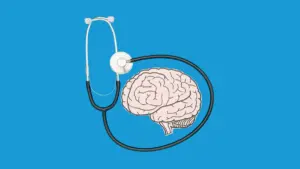Mental Illness Awareness Week (MIAW) is observed during the first week of October each year. It serves as a nationwide effort to raise awareness, foster understanding, and highlight resources available for people living with mental health conditions. This week encourages open dialogue and reminds communities that mental illness is common and treatable, not something to be feared or ignored.

History and Purpose
Established by Congress in 1990, Mental Illness Awareness Week has become a vital time for advocacy and education. Organizations like the National Alliance on Mental Illness (NAMI) lead efforts to spotlight the realities of living with mental illness and to promote compassion, education, and support.
Why Awareness Matters
Awareness helps reduce stigma and empowers individuals to seek treatment without shame. Millions of Americans live with conditions such as depression, anxiety, bipolar disorder, and schizophrenia. Highlighting these conditions during MIAW creates opportunities to share stories, learn from experts, and encourage people to connect with care providers.
Understanding Mental Illness
Common Conditions Highlighted
Mental illness takes many forms, including mood disorders like depression, anxiety disorders, post-traumatic stress disorder (PTSD), bipolar disorder, and schizophrenia. Each condition presents differently, but all can significantly impact daily functioning if left untreated. Recognizing the wide scope of mental illness allows communities to approach these topics with greater empathy and urgency.
Breaking the Stigma
Stigma remains one of the greatest barriers to treatment. Too often, individuals delay or avoid seeking care due to fear of judgment. Mental Illness Awareness Week aims to shift public perception by replacing stereotypes with understanding, promoting stories of recovery, and reminding people that mental health challenges are part of the human experience.
Events and Campaigns During Mental Illness Awareness Week
National Campaigns and Resources
Throughout the week, national organizations provide events, resources, and digital campaigns. NAMI hosts a series of awareness activities, and SAMHSA offers digital toolkits for communities and individuals. These campaigns provide valuable insights, professional guidance, and educational resources that are easy to share across schools, workplaces, and local organizations.
How to Get Involved Locally
Participation in Mental Illness Awareness Week can include attending workshops, joining awareness walks, or sharing resources online. Many communities host panels or peer support events to bring people together. Even small acts, such as posting educational materials or talking with loved ones, help spread awareness and build support.
Resources and Support Systems
Educational Materials and Toolkits
Resources like the SAMHSA toolkit and NAMI’s awareness events provide fact sheets, webinars, and guides that help individuals better understand mental illness. These tools can be shared with schools, employers, and families to increase awareness and encourage conversations.
Professional Treatment Options
Professional support is often key to managing mental illness. Therapy, counseling, and medical treatment are tailored to the unique needs of each individual. Facilities like Oceanrock Health and South Coast Counseling offer comprehensive care that combines therapy, evidence-based treatments, and holistic support.
Peer and Family Support
In addition to professional care, support from peers and family can make recovery more sustainable. Support groups create safe spaces to share experiences, while family education programs empower loved ones to provide encouragement without judgment. These relationships play an essential role in long-term healing.
How Oceanrock Health and South Coast Counseling Can Help
Comprehensive Mental Health Programs
Oceanrock Health provides specialized mental health programs for individuals struggling with conditions such as depression, anxiety, and trauma. Their holistic approach ensures that clients receive compassionate, individualized care designed to support long-term recovery.
Treating Co-Occurring Disorders
At South Coast Counseling, treatment focuses on both mental health and co-occurring substance use disorders. This integrated approach allows clients to address multiple challenges at once, providing more effective and lasting outcomes.
Taking the First Step
Seeking help is a courageous decision. Both Oceanrock Health and South Coast Counseling are dedicated to supporting individuals and families who are ready to take that step. Whether through therapy, treatment programs, or educational resources, compassionate care is always available.
Moving Forward With Hope
Mental Illness Awareness Week is more than a national observance—it’s a call to action. It reminds us that awareness, education, and treatment can make a lasting difference in the lives of millions. Whether you are personally affected by mental illness or supporting a loved one, this week is an opportunity to learn, connect, and seek the resources that can pave the way toward healing.








